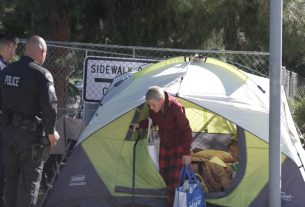The plight of Oqba, an Egyptian university student, highlights the growing concern over the human rights situation in Egypt, particularly the treatment of individuals targeted due to their family connections or political beliefs. Oqba, the brother of Amr, a legal researcher and human rights activist, has been unlawfully detained since May 2019. Despite being held for over five years without charge or trial, his case remains emblematic of the Egyptian authorities’ systemic abuse of power and disregard for both national and international legal standards.
The Arrest and Ongoing Detention
Oqba’s ordeal began on May 2019, when agents from the Egyptian National Security Agency (NSA) raided his dormitory. While the majority of students present were released, Oqba was kept in detention. His arrest appears to have been solely because of his familial relationship with Amr, whose activism defending human rights and political freedoms had made him a target of Egyptian authorities. Since his detention, Oqba has been denied a fair trial, languishing in prison without charge, in clear violation of Egypt’s constitution, which guarantees the right to a fair trial and prohibits arbitrary detention.
Torture and Inhumane Treatment
During his detention, Oqba endured severe physical and psychological torture. For 77 days, his family was kept in the dark about his whereabouts. Later, it was revealed that Oqba had been subjected to extreme forms of torture, including electric shocks and suspension from the ceiling, a method of interrogation widely condemned by human rights organizations.
Such treatment is not only illegal under Egyptian law but also violates Egypt’s international commitments, including the UN Convention Against Torture, to which Egypt is a signatory. The use of torture as a method of interrogation is prohibited under both Egyptian law and international human rights law, and the Egyptian government has repeatedly faced international criticism for its use of such practices.
Medical Neglect and Suffering
Oqba’s suffering has been exacerbated by medical neglect. In August 2022, Oqba’s prosthetic leg broke, leaving him reliant on fellow prisoners for basic physical tasks. For months, prison authorities denied him access to a replacement prosthesis, and when he was eventually provided with one, it was ill-fitting and caused him further physical harm. Additionally, Oqba has been denied essential medicines, including those needed for the care of his amputated stump. This medical neglect not only violates his right to health but also reflects the cruel and inhumane conditions many prisoners in Egypt are subjected to.
The denial of medical care to prisoners is a widespread issue in Egypt, with human rights organizations such as Amnesty International and Human Rights Watch regularly reporting on the deteriorating health conditions of detainees, especially those in political custody. The lack of access to adequate healthcare in Egyptian prisons has led to severe consequences for many individuals, with some prisoners losing their lives as a result.
Legal Injustice
Despite the fact that Egyptian law limits pretrial detention to two years, Oqba’s case has dragged on far beyond this period. In February 2024, a judge ruled that Oqba should be released due to his prolonged detention. However, prosecutors circumvented the court’s decision by opening a new case against him based on unfounded charges, keeping him in detention. This tactic is not unusual in Egypt, where individuals critical of the government are often subjected to indefinite detention, with charges that change over time or are based on dubious evidence.
This legal strategy is a blatant disregard for Egypt’s legal framework and a direct violation of international human rights law, including the International Covenant on Civil and Political Rights (ICCPR), which guarantees the right to a fair trial and protection against arbitrary detention.
A Message of Solidarity and Action
Oqba’s suffering is not an isolated case but part of a broader pattern of repression by the Egyptian government. His unjust detention is a direct consequence of his family’s commitment to human rights and the government’s ongoing efforts to silence dissent. The Egyptian authorities are using Oqba as a tool of psychological pressure on Amr, with the intent of deterring him from his activism.
The international community must take urgent action to hold the Egyptian government accountable for these violations. Human rights organizations, legal advocates, and international institutions must continue to call for Oqba’s immediate and unconditional release. Furthermore, the Egyptian authorities must be urged to adhere to their obligations under both domestic and international law, ending the systemic abuse and mistreatment of prisoners, particularly those targeted for their political beliefs or familial associations.
Conclusion
The case of Oqba serves as a stark reminder of the human rights crisis in Egypt and the persistent repression faced by activists and their families. His unlawful detention, torture, medical neglect, and the ongoing legal injustice he faces represent grave violations of his rights. The Egyptian authorities must immediately release him, end the abuse, and ensure that such atrocities are not perpetuated against other prisoners in Egypt.
As we await justice for Oqba, it is crucial that we continue to raise awareness and demand accountability. His freedom is a matter of human dignity and legal rights, and the international community must unite in calling for his immediate release.
References:
- Human Rights Watch, “Egypt: Authorities Target Political Activists,” 2023.
- Amnesty International, “Egypt: Systematic Use of Torture and Arbitrary Detention,” 2022.
- United Nations, Convention Against Torture and Other Cruel, Inhuman or Degrading Treatment or Punishment.
- International Covenant on Civil and Political Rights, United Nations.


